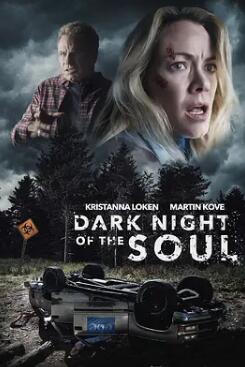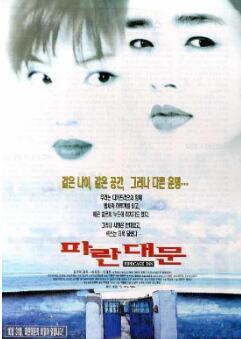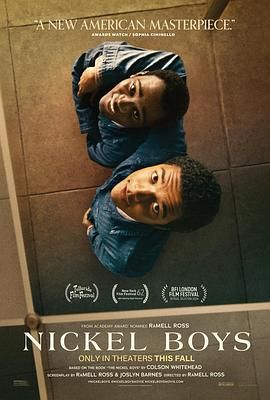- 正在播放《欧洲的某个地方》DVD中字 - LZ
- 提醒不要轻易相信视频中的任何广告,谨防上当受骗
- 技巧如遇视频无法播放或加载速度慢,可尝试切换播放节点或者切换解析
- 收藏免费在线视频观看网址:ciallotv.com / ciallotv.com ,记得收藏哟~
剧情:
Somewhere in the remote region, the war ends. In the midst of ruined cities and houses in the streets, in rural hamlets, everywhere where people still live, are children who have lost their homes and parents. Abandoned, hungry, and in rags, defenseless and humiliated, they wander through the world. Hunger drives them. Little streams of orphans merge into a river which rushes forward and submerges everything in its path. The children do not know any feeling; they know only the world of their enemies. They fight, steal, struggle for a mouthful of food, and violence is merely a means to get it. A gang led by Cahoun finds a refuge in an abandoned castle and encounters an old composer who has voluntarily retired into solitude from a world of hatred, treason, and crime. How can they find a common ground, how can they become mutual friends The castle becomes their hiding place but possibly it will also be their first home which they may organize and must defend. But even for this, the price will be very high. To this simple story, the journalist, writer, poet, scriptwriter, movie director, and film theoretician Béla Balázs applied many years of experience. He and the director Géza Radványi created a work which opened a new postwar chapter in Hungarian film. Surprisingly, this film has not lost any of its impact over the years, especially on a profound philosophical level. That is to say, it is not merely a movie about war; it is not important in what location and in what period of time it takes place. It is a story outside of time about the joyless fate of children who pay dearly for the cruel war games of adults. At the time it was premiered, the movie was enthusiastically received by the critics. The main roles were taken by streetwise boys of a children's group who created their roles improvisationally in close contact with a few professional actors, and in the children's acting their own fresh experience of war's turmoil appears to be reflected. At the same time, their performance fits admirably into the mosaic of a very complex movie language. Balázs's influence revealed itself, above all, in the introductory sequences an air raid on an amusement park, seen in a montage of dramatic situations evoking the last spasms of war, where, undoubtedly, we discern the influence of classical Soviet cinematography. Shooting, the boy's escape, the locomotive's wheels, the shadows of soldiers with submachine guns, the sound of a whistle—the images are linked together in abrupt sequences in which varying shots and expressive sharp sounds are emphasized. A perfectly planned screenplay avoided all elements of sentimentality, time-worn stereotypes of wronged children, romanticism and cheap simplification. The authors succeeded in bridging the perilous dramatic abyss of the metamorphosis of a children's community. Their telling of the story (the scene of pillaging, the assault on the castle, etc) independently introduced some neorealist elements which, at that time, were being propagated in Italy by De Sica, Rossellini, and other film artists. The rebukes of contemporary critics, who called attention to formalism for its own sake have been forgotten. The masterly art of cameraman Barnabás Hegyi gives vitality to the poetic images. His angle shots of the children, his composition of scenes in the castle interior, are a living document of the times, and underline the atmosphere and the characters of the protagonists. The success of the picture was also enhanced by the musical art of composer Dénes Buday who, in tense situations, inserted the theme of the Marseilaise into the movie's structure, as a motive of community unification, as an expression of friendship and the possibility of understanding. Valahol Europaban is the first significant postwar Hungarian film. It originated in a relaxed atmosphere, replete with joy and euphoria, and it includes these elements in order to demonstrate the strength of humanism, tolerance, and friendship. It represents a general condemnation of war anywhere in the world, in any form.
收起
在线观看
播放节点列表
LZ1
BF1
【已完结】
官网同步更新,若有延迟请稍作休息再看看
官网同步更新,若有延迟请稍作休息再看看
相关影片
2023
剧情片
台湾
HD
2024
剧情片
泰国
HD
2013
剧情片
华语
HD国语版
2024
剧情片
中国香港
HD
HD
2023
剧情片
加拿大
阿琳(Arine)困难的经济状况迫使她回到家乡,在那里她在危地马拉农场的季节性工人和他们的加拿大雇主之间找到了一份翻译工作。尽管她本应保持公正,但当她多次目睹农民工遭受虐待时,她却无法保持沉默。她可能
HD
2024
剧情片
希腊
夏日时光。一个三口之家,单身父亲巴比斯和他即将成年的双胞胎孩子康斯坦丁诺斯和艾尔莎,乘坐家庭小船前往波罗斯岛度假。在游泳、日光浴和结交新朋友的过程中,康斯坦丁诺斯和艾尔莎无意中遇到了他们的生母安娜,她
HD
2024
剧情片
美国
HD中字
2024
剧情片
日本
HD
2025
剧情片
中国大陆
抢先版
1998
剧情片
韩国
HD中字
2006
剧情片
中国香港
HD
2024
剧情片
美国
哈米什·林克莱特 卢克·坦尼 桑妮·马布雷 弗莱德·赫钦格 安洁纽·艾莉丝-泰勒 特伦斯·罗斯摩尔 比利·斯洛特 Ginger Cressman 露西·浮士德 克雷格·泰特 Bryant Tardy 埃斯卡兰特·兰迪 Suzette Lange Anthony Marble Brooklyn Majors Rachel Whitman Groves Kaden Washington Lewis 伊桑·赫里斯
改编自科尔森·怀特黑德的普利策奖获奖小说,讲述了60年代一位年轻的黑人男孩因被诬告犯罪而被送到改造学校的故事。
HD
2024
剧情片
希腊
夏日时光。一个三口之家,单身父亲巴比斯和他即将成年的双胞胎孩子康斯坦丁诺斯和艾尔莎,乘坐家庭小船前往波罗斯岛度假。在游泳、日光浴和结交新朋友的过程中,康斯坦丁诺斯和艾尔莎无意中遇到了他们的生母安娜,她
HD
2024
剧情片
美国
瑞安·戴斯蒂尼 Jazmin Headley Kylee D. Allen 布莱恩·泰里·亨利 De'Adre Aziza Chrystian Buddington Maurice Wayne Anglin Teanna Weir Idrissa Sanogo Taytem Douglas 奥妮克·阿德莉 Adam Clark Shechinah Mpumlwana Nendia Lewars Sekhai Jayden Smith C
凭借《泥土之界》提名奥斯卡最佳摄影的瑞秋·莫里森,是首位获得提名的女摄影师要,根据国外媒体报道,瑞秋·莫里森正在与环球洽谈执导影片《Flint Strong》。影片改编自2016年的一部纪录片《霸王龙
HD中字
正在热播
更多
2024
科幻片
美国 / 英国
独家推荐
HD中字|HD国语
2024
国产剧
中国大陆
独家推荐
全23集
2024
国产剧
中国大陆
独家推荐
张若昀 李沁 陈道明 吴刚 田雨 李小冉 俞飞鸿 袁泉 毛晓彤 郭麒麟 宋轶 辛芷蕾 宁理 刘端端 张昊唯 付辛博 高曙光 赵柯 于洋 李强 刘桦 佟梦实 郭子凡 金晨 王楚然 高露 王晓晨 隋俊波 归亚蕾 余皑磊 毕彦君 罗二羊 吴幸键 宣言 王庆祥 徐志胜 崔志刚 傅迦 姚安濂 秦焰 沈晓海 王同辉 冯兵 常铖 王建国 刘宇桥 冯恩鹤 赵振廷 董可飞 李俊贤 崔鹏 贾景晖 王天辰 代文雯 王成阳 张弛 左凌峰 刘同 张维伊 东靖川 杨彤 孙亦沐 于小鸣 魏炳桦 李珞桉
该剧改编自猫腻同名畅销小说,承接上季,范闲(张若昀 饰)率领使团回归途中,二皇子以费介、范思辙以及滕家遗孤的安危来威胁范闲,逼他向自己俯首称臣,二人的矛盾就此激发。范闲所面对的抱月楼迷局,以及接踵而至
第36集完结




















